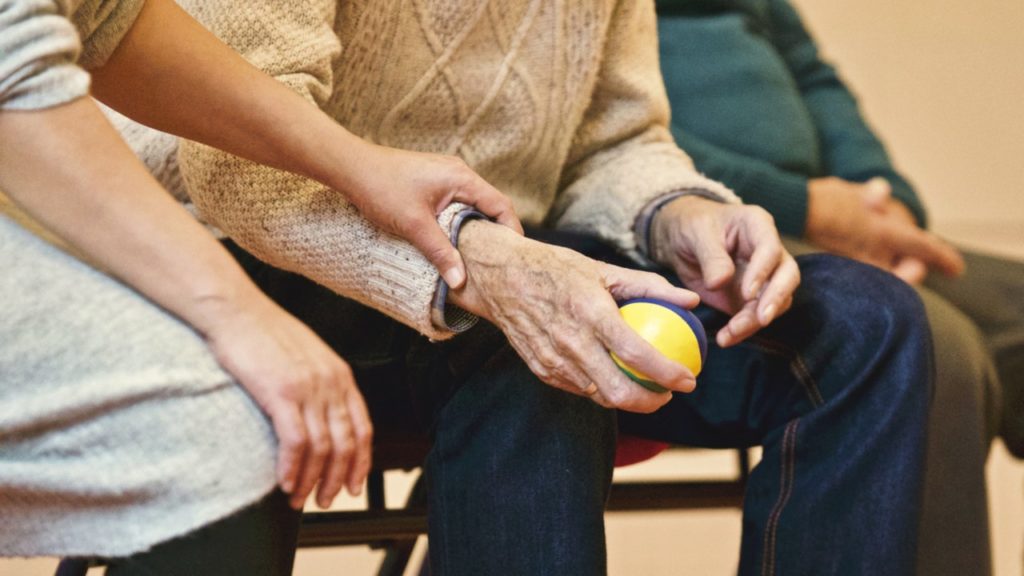
in Choose Hope Today, Grief, Living Hope
From our Founder: Friends, back in the Spring I ran into my friend Murray Clayton at a wedding in Nashville. She expressed her enthusiasm for what she was reading on Living Hope and said that she would like to contribute her personal story of recovering from the death of both of her parents. I knew that losing her parents had been particularly poignant for Murray as I was still living in Nashville at the time that they died. What I didn’t know was how the experience of losing her parents has shaped her approach to her real estate business.
We had the opportunity to connect with Murray to talk about Grief and the importance of going through your Grief in order to properly get through it. At Living Hope, the Practice of Grief is the third step on your path to Hope. We are honored to share Murray’s words and wisdom with you and hope that whether you are grieving the loss of a loved one, a relationship, job, or dream, or are struggling to adapt to what feels like constant change in your life, you will find encouragement in her story.
Were there any Living Hope practices you were able to use while supporting your parents? Or within your grieving process? If so, please tell us about them.
As I reflected on the 8 Practices of Living Hope, it was evident to me that I utilized several Practices to cope. The first is Forgiveness: without divulging the entire story, I can share that I was given counsel to forgive the past as my mother was deteriorating and I am thankful I did. The second is the Practice of Resilience: supporting and caring for my aging parents was a seven and a half year journey, full of significant ups and downs, and I was able to survive and find strength throughout the process. Furthermore, I feel that I am now a stronger person because of what I walked through with my parents. The final Practice that was helpful to me was Joy: the loss of my parents was the saddest thing I have experienced thus far in my life, but they were able to pass in peace and with my siblings and I surrounding them.
You have shared that both your mom and dad’s passing were very impactful to you. Can you describe the impact this had on you?
My mother’s passing if it could be said, was just beautiful. She passed away early morning on a Friday. The Wednesday before that, we had received a large, crippling snow storm. It was a beautiful snow though, and her bed was right by the window. The day it came down, she had just been given by last rites by our priest. Then the snow came and I will never forget tilting her head to the window and saying, “Look, Mom, it’s your white magic carpet ride coming for you.” It was so white and pure looking outside that I just knew it was her time.
She was able to stay with us one more full day and night. The last grandchild made it home from college, and when we told her he was there, it was only a few minutes later, unbeknownst to our family sitting by her bedside, that the pendant she was wearing to notify the nurses of her vital signs went off. The nurses came running in to see what was needed and to turn off the pendant; we all felt with the heaviest of hearts that that was her exit. No one had touched the pendant.
When my father passed away, we were all there with him. It too was a heartfelt process. I had come to see him one afternoon in the nursing home and knew his passing was to come. I found him in distress and trying to crossover to the other side. After calling for the nurse and for my brothers to get over there, he passed 45 minutes later with pictures of my mother all surrounding his bed. We were there with him for his last breath and I am forever grateful for that time. In a strange way, just being there and assuring him it was time to go be with our mother, was Joy to me. He was finally at peace and he loved to dance with my mother. He could twirl in heaven with his special angel once again.
Once your parents had passed away, what did the grieving process look like for you?
The grieving process didn’t start until both my parents had passed. After my mother passed away, I had to put my energies into my Dad. I wasn’t able to grieve her loss. My experience of grief is still with me. I honestly think I see it more clearly now than I did after they both were gone. To me, grief comes in a form of being lonely. It appears when all is very quiet. It still comes over me when I least expect it. I still sometimes feel as if it just isn’t true that I have no parent still here on earth. To me, that hurts. Grief hurts and when I am hurt, I run away from the pain. So I don’t often allow myself to go there. I quickly change my course as to not hurt as bad.
Do you think the delay in grief that you spoke about was beneficial or harmful?
I wish that I could have taken some time to really let it set in, but I quickly returned to work after my mother passed away and did the same after my father passed away. Actually, I went on a nine day trip only two and a half weeks after my father passed away. At that point I was numb. Another thing that I did, which I truly believe is a huge mistake, was changed jobs six months after my father passed away. I have always heard to never make any life changes [in the midst of grieving or trauma]. Well, now I understand why they say that. Your head is just not on correctly, at least mine wasn’t. I really, once again, didn’t allow myself to sit and let myself cry all the tears I needed to shed. But to keep on going at a ridiculous speed [was] all that I had known for the last seven and a half years of taking care of both my parents and keeping a full time sales job.
How would you suggest individuals begin this grieving process earlier?
I really feel as if I grieved for years before my mother passed away, and so many people would tell me that as well. But it makes no difference, when it becomes real and has happened it is every bit as painful. One way to grieve is to allow yourself time to cry–and cry some more. And most importantly, don’t always cry by yourself. Allow yourself to cry to a good friend, coworker, anyone that will listen. Sometimes it is just helpful to have another set of ears to hear and feel our pain with us.
How would you encourage those who are caring for their aging parents to practice self-care and to honor their Grief?
When you’re the caregiver, you have to take some time for yourself. If you don’t, it is very easy to get exhausted, sick and most importantly, resentful. Nothing good will come from the caregiver being overextended. Ask for help. Remember we can’t do it all alone–my family reminded me of this often. At many parts of my caretaker journey I was angry and resentful and that is not fair to anyone, especially our parents. Always remember that when our parents are aging and suffering, we become the parents and we also need a break from it every so often. I used to explain to my dad that sometimes, after my mom passed away, I couldn’t drop what I was doing and run to take him out all the time. I would explain that I did indeed have my own life to live and that I needed time for me to grieve my mom’s passing. I found that this clear communication, whenever possible, is so important.
What else do you want to share about your experience supporting your aging parents?
I feel fortunate that I was not alone in the caregiving of my parents. My two brothers and I were able to work as a team; we had intentional conversations throughout the entire process to ensure that we were utilizing our strengths in the best ways possible. I am very cognizant of the fact that it is extra challenging when a person has to walk this out alone and I am grateful that my siblings and I were able to work cohesively and compassionately to support each other and my parents.
As a Realtor, you mentioned that your experience in losing your parents was an aspect that you are bringing into your real estate business: offering clients guidance and support through selling a family home in the midst of transitioning a parent into nursing care or if a parent has passed away. Would you please speak more directly into this aspect of the grief process?
When I am asked to list a property of someone who is transitioning to assisted living or a nursing home facility, I am very compassionate and make sure to respect their home as they have. I always try and support the family of the homeowner as well. I never want the homeowner to feel as if just because their home is on the market, it doesn’t mean it isn’t theirs anymore. I also give a lot of support to the family as well, and share some ideas that seemed to work for my family when we moved our parents out of their condo. An example of an idea I might share is to try their best to set the new apartment up to look as close to the old one as possible; we all know that change is hard at any age, especially the older we get. I find that when I am involved with a client that is moving and I can go over to the facility to visit, and even lend a hand to help unload boxes or help them make it feel more like their home, it is a great, comforting feeling to me. It takes me back to the great memories I had with my parents.

Murray is a Nashville Native. She graduated from the University of Mississippi and has worked in sales all her life. She is currently a real estate agent with Neal Clayton Realtors.
